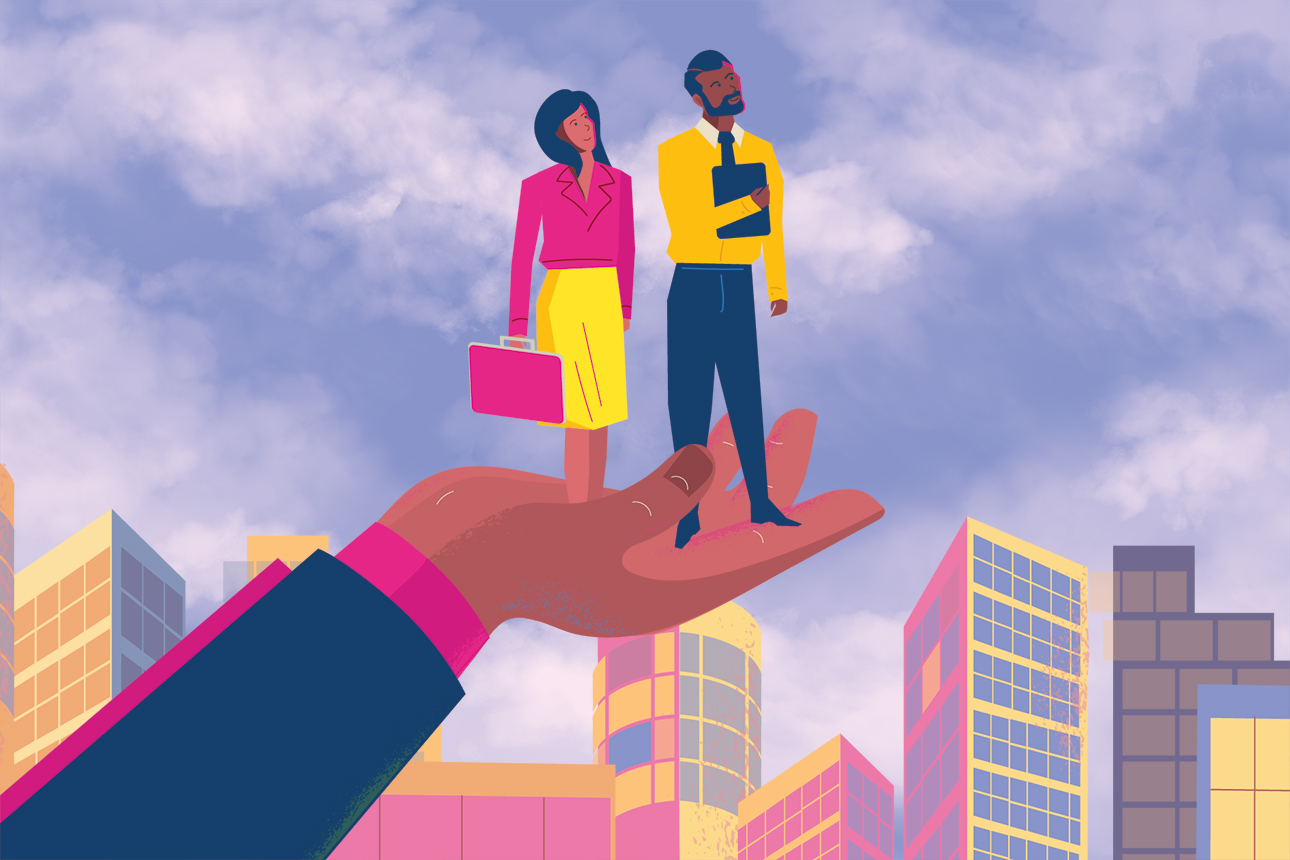Developing Future-Ready Skills With Peer Coaching
Peer coaching plays a foundational role in developing the human skills that technology cannot replace.
Topics
The Future of Workplace Learning
Brought to you by
Skillsoft
The forces of disruption reshaping the future of work moved at a faster pace than ever during the past year. With the pandemic making it unsafe for many people to work in person, companies around the globe turned to remote work and accelerated the use of automation technologies such as AI and robotics. COVID-19 brought about a reallocation shock, which economists at the University of Chicago estimate has caused three new hires for every 10 layoffs. They also predict that 32% to 42% of COVID-19-related layoffs will be permanent.
To avoid mass long-term unemployment, we must prioritize and pour efforts into preparing workers for the jobs of the future. Increasingly, these are the kinds of jobs that focus on uniquely human skills that current technologies cannot simulate — things like empathy, problem-solving, collaboration, and communication. Increasing such skills not only helps workers but also has real business implications: Human skills make companies stronger.
Get Updates on Transformative Leadership
Evidence-based resources that can help you lead your team more effectively, delivered to your inbox monthly.
Please enter a valid email address
Thank you for signing up
The World Economic Forum’s “Future of Jobs Report 2020” shows that workers recognize this. Topics like mindfulness, meditation, gratitude, kindness, and listening moved into the top 10 areas of focus among employed people, supplanting artificial neural networks, cloud computing, and general statistics.
Employers are also recognizing the need to increase their development initiatives for so-called soft skills, which are now also known as power skills or human skills. But businesses face a fundamental challenge: Most worker training was designed for teaching rote and technical skills. Traditional workplace learning programs were built to look like schools and universities, with teachers lecturing students. Even today this remains the case, with most programs following the same model.
Developing human skills is a completely different ballgame, where seminars and instructor-led workshops won’t suffice.
Developing human skills is a completely different ballgame, where seminars and instructor-led workshops won’t suffice. People develop skills like empathy, communication, listening, and the ability to provide constructive feedback by being put into situations where they have to put these skills to use.
This is a primary reason I focus on peer coaching, in which colleagues have guided one-on-one hourlong conversations, either in person or via video, on an ongoing basis. They ask each other questions, listen intently, offer ideas, and make plans to take a concrete action before their next session.

Comment (1)
Sridhar Vijay